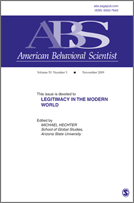The world of broadcasting and communications is changing rapidly. Television, film, music, radio and publishing companies are being absorbed into ever larger corporations, while telecommunications and e-companies are becoming a prime source for information and commerce all over the world. Yet, as these changes in technology and ownership heighten competition among broadcasting and telecommunications companies,
Institutions of Democracy
The 106th Congress Was One of the Most Civil Congresses in the Last 15 Years
The 106th Congress was better than five of the last eight Congresses on four measures of civility – name calling, the use of the word lie, vulgarity and pejoratives for speech – according to a new study released by the Annenberg Public Policy Center at the third bipartisan House Retreat at the Greenbrier in White
Issue Advertising in the 1999-2000 Election Cycle
Annenberg Public Policy Center Tracks over $509 Million in Reported Expenditures on Issue Advocacy Almost $248 million was spent on TV ads in the top 75 media markets after Super Tuesday, $85 million addressed health care issues. Download the report Issue Advertising in the 1999-2000 Election Cycle.
Are Voluntary Standards Working? Candidate Discourse on Network Evening News Programs
Only one in four of the network stories aired before the primaries and before the general election were issue-oriented, and the networks averaged a little over a minute per night per network in candidate-centered discourse. Researchers examined network television coverage of the political campaigns for the 30 days preceding the Super Tuesday primaries and the
Annenberg Survey: Most Americans Still Unfamiliar With the Presidential Candidates
As the talking heads, columnists, and political reporters begin to presuppose the biographical data and issue positions of the presidential contenders, an Annenberg Public Policy Center survey raises a caution. Biography matters; the public is still learning some of those details the elites take for granted.
Annenberg Survey: Americans familiar with some of candidates’ issue stands and backgrounds, fuzzy on others
While on certain issues people appreciate the distinctions between candidates, there are a number of areas in which the electorate has more to learn.
Americans Learned Much About Candidate Positions After First Two Debates
Those “Not Much Interested in Politics” Have Begun Focusing On Campaign More Americans were able to correctly identify the presidential candidates’ positions on a host of issues after the first two debates than they were prior to the debates, according to a new study released today by the Annenberg Public Policy Center.
Undecided Voters Most Likely to Get Candidates’ Positions Wrong By Filling In Knowledge Gaps
Upcoming Debates Could Solidify Undecideds’ Choice for President With over half of all Americans unable to identify Al Gore and George W. Bush’s positions on issues ranging from the economy to health care to education to crime, the debates that begin tomorrow night could play a major role in deciding the outcome of this election,
While the Public Learned Specifics About Bush and Gore After Their Conventions, One out of Two Still Not Ready to Vote
Men More Likely than Women to Know Policy Positions and More Likely to Feel they Can Make an Informed Choice for President In this analysis the Annenberg Public Policy Center examines why only one in two Americans (49 percent) feels she or he has learned enough about Al Gore and George W. Bush to make
